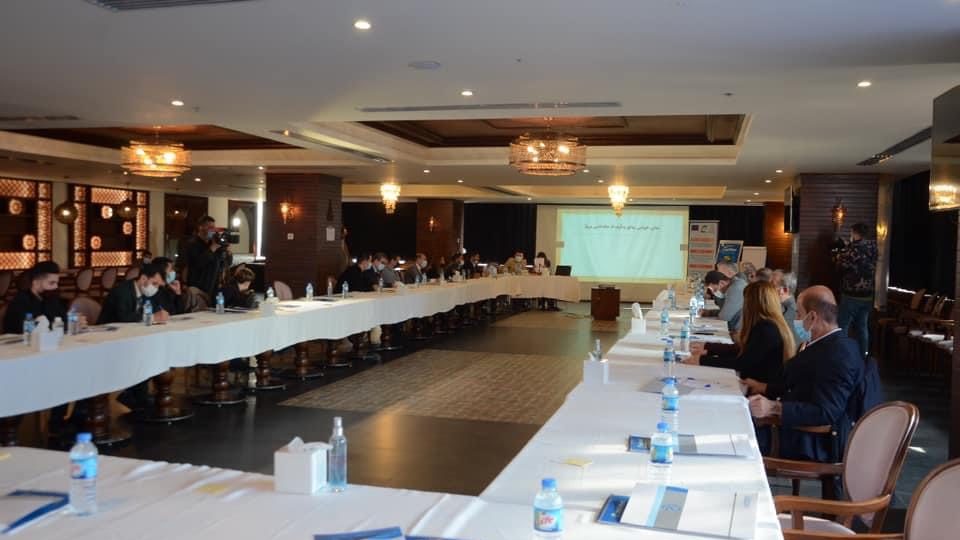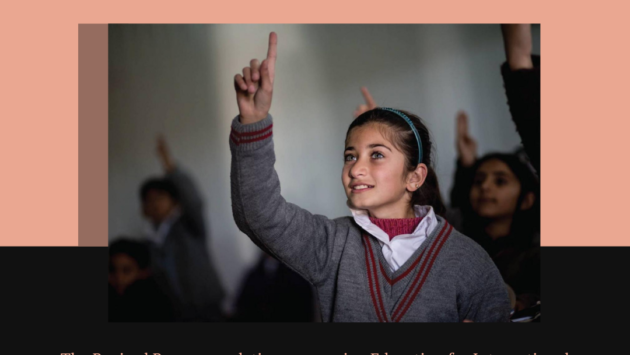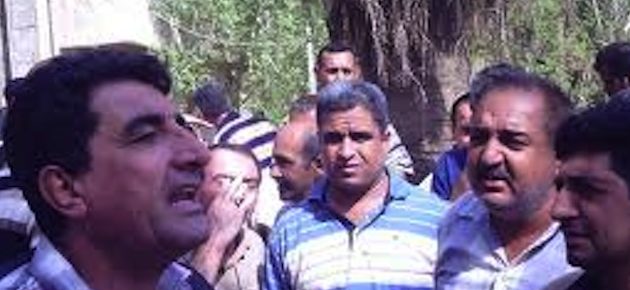On the International Human Rights Day, Al-Mesalla Organization Discusses Education System During COVID-19.
A Roundtable between Civil Society Organizations and local authorities
On the occasion of the International Human Rights Day
The main objectives of the roundtable were, highlighting the challenges faced the Education system during COVID-19 and quarantining the right of Education, as it is considered one of the Human Rights.
The roundtable conducted in participation of the local authorities represented by the Parliament and the Kurdistan Regional Government in addition to Unions, Syndicates and Civil Society Organizations.
Sana Zada (the facilitator of the Roundtable) opened the discussion by welcoming the participants, and then the General Direct of Al-Mesalla Mr. Ibrahim Ismail talked about the CSSC-Erbil to assure that the center is established to develop the capacity of Civil Society Organizations, and develop the interactions to the social challenges to support finding solutions.
He also clarified the aim of the roundtable is to cooperate in supporting the Civil Society Organizations to find solutions for the Education challenges during COVID-19.
Dr. Dara Mohammed represented the Commission of Human Rights; he mentioned, “Education is one of the International Human Rights which was mentioned in the second generation of announcing the Rights”.
He assured that” This right must be guaranteeing in the most difficult circumstances, through direct state intervention by developing the necessary infrastructure for that”.
The General Director of Ministry of Health Bureau in Kurdistan Dr. Khales Rashid mentioned; “the decision of suspending the Education was made after noticing an increase in the infection rate within two weeks of opening the schools, which exceeded a thousand”.
He Indicate, “The Ministry of Health has an average if this average is passed it alarm ante, and it required to take actions, that is why we suspend education”.
In other hand, Dr. Tanya Othman (the Adviser of the Minister of Education in Kurdistan) clarified that” the plan of the ministry is clear regarding the resumption of the official working hours, however it may change according to circumstances and crisis cell’s decisions”. She added that” the Ministry measures to guarantee the Education Right has developed the digital tools by moving to the cyber schools”.
Teachers’ Union represented by Mr. Ahmad Garmiany showed that” The Teachers’ Union agreed to suspend the official working hours especially since many teachers have been infected, and we should protect the education facilities and the students from the pandemic”. However, he was wondering, “Is the digital study containing the Education?”
The participants discussed mechanisms for supporting civil society to government efforts to guaranteeing the right of education.
Mr. Hiwa Refaat (a member of Student Organization Development), clarified” the students are facing challenges in linking into Internet devices due to the poor connection or the economic situation of their families”. He recommended providing curriculums and lectures on CDs or other tools to facilitate reaching those materials to students even without Internet.
Mr. Sorour Abd Al-Rahman (Former member of Kurdistan Region Parliament) suggested;” to replace books and curriculums with tablets for studying, containing all the curriculums and toolkits that could be a development of Education system”. Adding, “Providing a toolkit on prevention measures from pandemics will be so important for the students, to educate them prevention measures and how to protect general health situation”. He assured the importance of attending to the schools once per week.
The representor of “Standing Tech Company”, Mr. Azad Omar suggested some technical solutions mentioning, “It is possible to provide a local network for students with easy access which does not requiring a strong connection”.
He added,” the companies of information technical can train the studying facilities to develop their capacity in the digital domain.
At the end of the roundtable, the participants shared their recommendations as bellow:
- Focusing on developing the electronic technology, and raise the awareness of the Education facilities and students on the digital study.
- Facilitate in accessing the student to the education toolkits in various ways, for example: internal technical networks, which help the students to reach the Cyber School easily, CDs that contain the curriculums and slides, tablets that contain the martials.
- Develop a curriculum of the prevention measures of pandemic and protect the general health situation. Educate the students on various ways of implementing the social distance and COVID-19 prevention.
- The participants recommended to open the schools once per week for better communication with the teachers and take in consideration the preventative measure of COVID-19.
- Train the education facilities on the digital tools in cooperation with civil society organizations and technical information companies.
- Raise awareness by using the local media stations on how using technology for the cyber schools.
- Linking Civil Society Organizations with the Ministry of Education to ensure provide the required support for the government efforts on Education.
- Connect with relevant international institutions and friendly countries to support in develop the Education system in Kurdistan region, especially on the electronic side and guaranteeing the Education Right.
- The importance of distributing delayed salaries for the teachers.
The Civil Society Service Center (CSSC)- Erbil, is one of the centers of TATWEER Project which is implemented by Al-Mesalla in partnership with Un Ponte Per (UPP) and funded by European Union.




